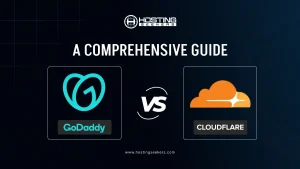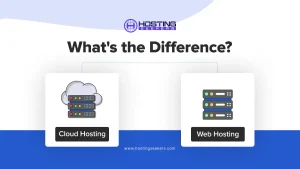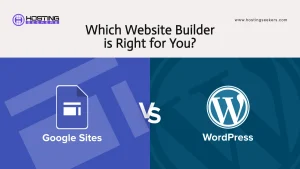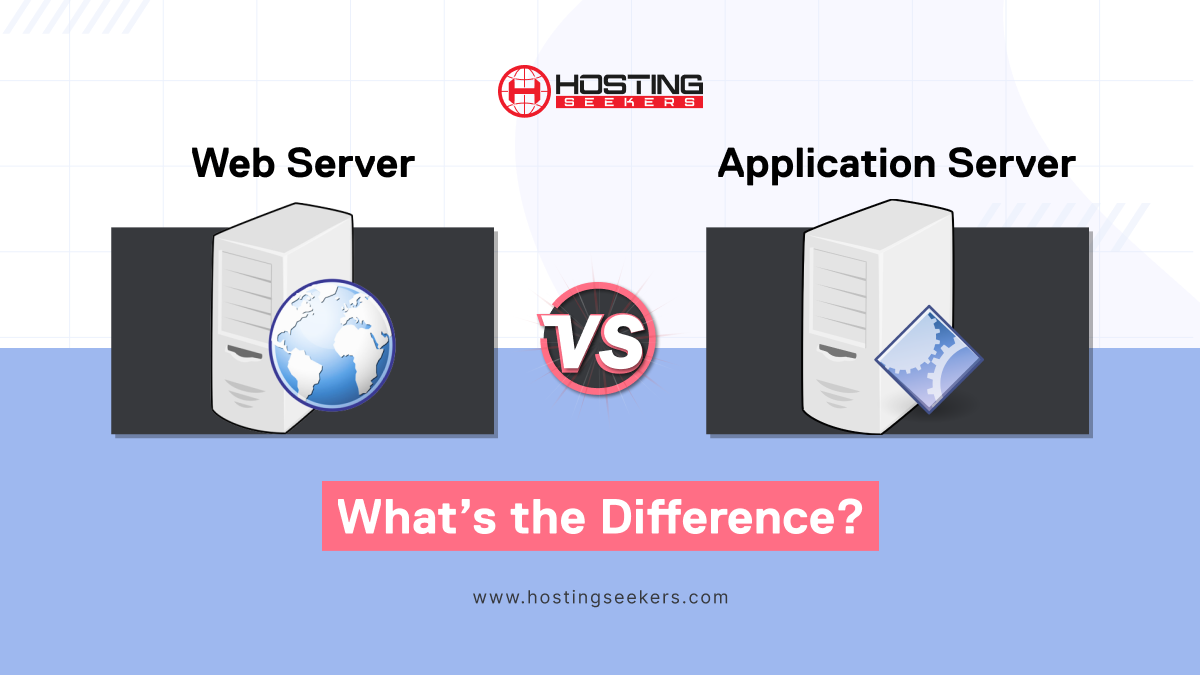
Difference Between Web Server and Application Server
Comparison Web Server Updated on : October 3, 2024With the rising evolution of digital technology in businesses, business owners and employees need to understand its standard computer terms and how to apply digital systems to their organizations. It is vital for businesses to understand servers. The most important and common types of servers one should understand are web servers and application servers.
Table of Content
- What is a web server?
- Pros and Cons of Web Server
- What is an application server?
- Pros and Cons of Application Server
- App Server vs. Web Server: Main Differences
- Similarities Between Web and Application Servers
- Famous Web and Application Servers
- Which server is right for your business?
- Tips for Creating Web Servers and Application Servers
- Frequently Asked Questions
In this guide, we will explore the application server and web server difference, which will help you make a robust decision in choosing the servers as per your business demands.
What is a web server?
A web server enables a computer to host webpages. Web servers deliver static content like files, HTML pages, videos, and images in response to hypertext transfer protocol (HTTP) and secure (HTTPS) requests from a web browser.
They deliver content to the users through a web browser, a website, or a mobile application based on the web server setup. The browser may also store one or more websites.
How does a web server work?
When discussing the differences between apps and web servers, let’s understand how web servers work. Web server software can be viewed through website domain names and ensures the delivery of the site’s content to the requesting user.
The software side comprises several components, with at least an HTTP server. The HTTP server can understand URLs, links, and HTTP. Speaking about hardware, a web server is a computer that stores and installs web server software and other data related to the website, like HTML documents, JavaScript files, and images.
Web Server Features
Let’s check the web server’s features.
- The web server supports ample data storage and handles various websites.
- It enables you to set up log files on the web server to troubleshoot errors.
- It also helps to manage the bandwidth that regulates the incoming traffic to the web server, avoiding downtime for any website.
- You can even create FTP websites as a web server to transfer data from one site to another without any effort.
Pros and Cons of Web Server
Pros of Web Servers
- You get the vital data needed to communicate with the web hosting provider.
- It helps manage the download speed for any web-based application and enhances performance
- Offers permission to fix broken links and view URL construction.
- Ensures transparency while making transactions between your website and the server.
- Provides flexibility and control.
Cons of Web Server
- More expensive than other web hosting practices.
- It is sometimes challenging to personalize the hosting service, depending on the web server.
- You may face server crashes due to high traffic.
What is an application server?
The application server is specially developed and designed to execute and run applications. It consists of hardware and software that creates an appropriate program implementation environment.
An application server is a program that resides or loads on the server side. It is a server program that is responsible for ensuring that any application loads correctly.
How Does the Application Server Work?
To understand an application server’s general function, it’s vital to understand its place within a network. It ranks individual clients and the database.
It receives and responds to HTTP requests but can also issue servlet requests and process the corresponding responses. This is one of the main differences between applications and web servers.
Features of Application Server
- This helps manage complexity, maximize security, and offer modularity in application server software systems.
- It provides interfaces to other higher-value services, enabling the system to interact with other services or components that offer additional functionalities.
- It offers asynchronous communication between systems or components where the receiver and sender don’t need to interact frequently.
- Persistence mechanisms like file systems or databases store data reliably over time, allowing applications to retrieve and manipulate data as needed.
Pros and Cons of Application Server
Pros of Application web server
- Application servers can work with HTTP, HTTPS, IIOP, and RMI protocols.
- One easily accesses and shares data with the application server.
- They provide better security and enhance performance that can be witnessed.
- They utilize both web containers as well as EJB containers.
Cons of the Application Web Server
- They are comparatively more expensive than web-based servers.
- Need assistance in configuring before installing any new utility or software.
- Their performance can sometimes be degraded as multiple resources are used at once.
- The disk size and bandwidth need to be analyzed and monitored regularly.
App Server vs. Web Server Difference
| App Server | Web Server |
| Utilizes HTTP, HTTPS, IIOP, and RMI protocols | Utilize only HTTP protocol |
| It includes both a web container and an EJB container | Web server includes web container |
| Do not support multi-threading | Support multi-threading |
| Stores dynamic pages developed by database. | Web server is used for storing static HTML pages. |
| Utilizes Web Logic, Web Sphere, and JBoss. | Utilize an Apache server, Tomcat and JWS |
| App servers are being utilized for large projects like government and banking | Web servers are used for small, web-based applications. |
Similarities Between Web and Application Servers
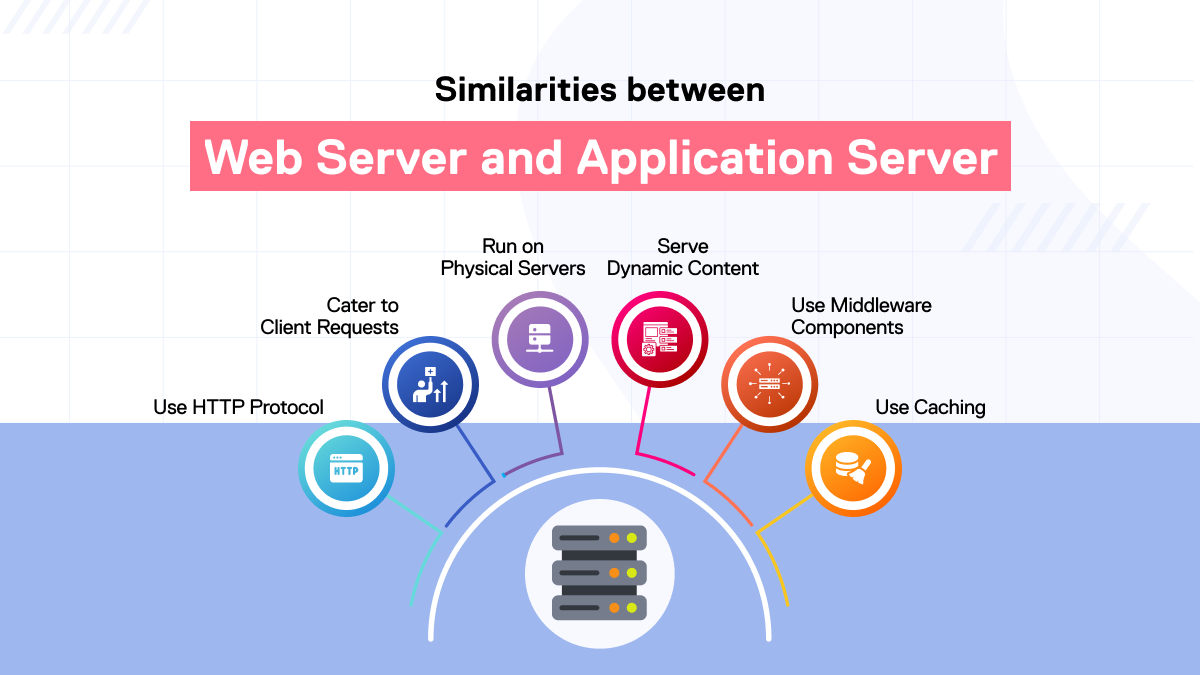
- Respond to Client Requests: Both web servers and application servers cater to client requests over the internet.
- Use HTTP Protocol: Both web servers use HTTP protocol to interact with customers.
- Run on Physical Servers: Physical servers, which can be dedicated or virtual machines, are used by both app server and web server.
- Serve Dynamic Content: The web server and application server offer dynamic content, such as pages generated depending on user database queries and input.
- Use Middleware Components: Web and application servers utilize middleware components like database connections to process requests and generate responses.
- Use Caching: Both web servers and application servers can utilize caching to improve performance by storing efficiently and frequently accessed data in memory.
Famous Web and Application Servers
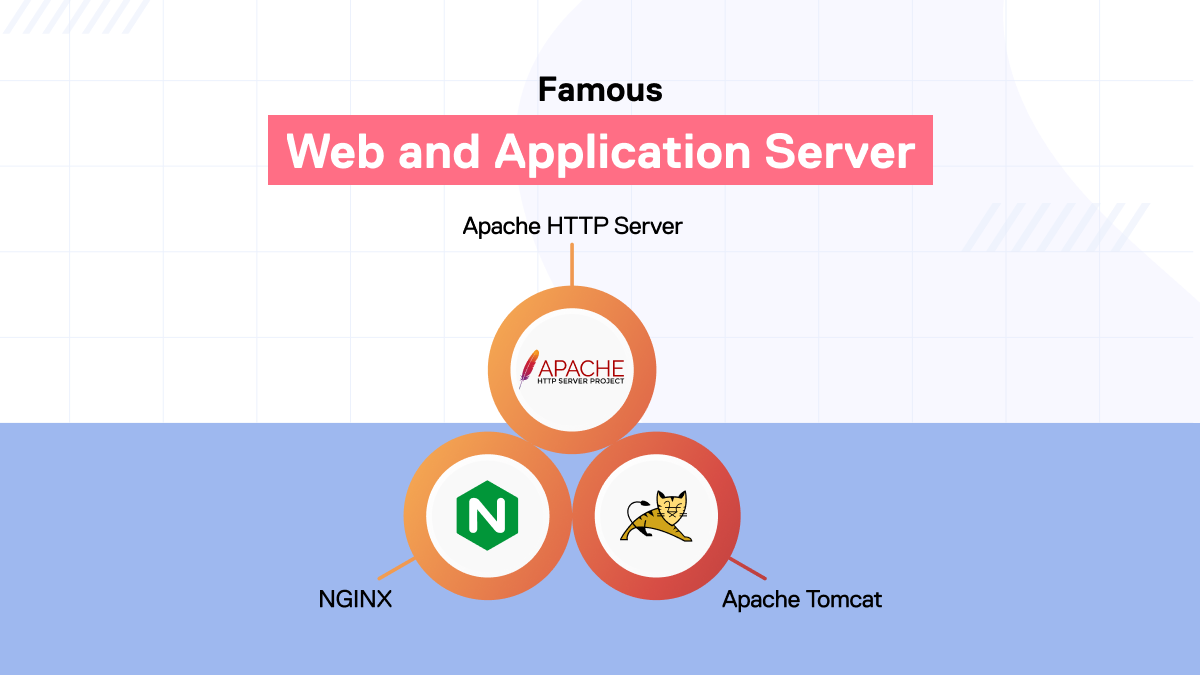
Apache HTTP Server
The Apache HTTP server—often known as Apache—is regarded as the best web server for shared hosting environments. Its capability to add configuration files for user virtual servers and paths makes it ideal.
NGINX
This web server serves a reverse proxy, load balance, and HTTP cache. The non-blocking, NGINX even-driven architecture makes it both scalable and faster. It is frequently deployed in Kubernetes stacks.
Apache Tomcat
Apache Tomcat is considered an open-source Java application server that serves as a reference implementation for Java Server pages and Servlet.
Which server is right for your business?
Web Server
A web server may be the appropriate option if you just need to host static webpages. For instance, if you are running a small business and just need a company website to promote the services and products, then a web server will be sufficient for you as it will only publish data and information regarding your business or services. Another example is a blogging website, as it doesn’t require many additional functionalities.
In addition, a web server can also allow you to host your website and include some vital features, like an online store where clients can place orders and complete transactions. However, because it does not offer any more plugins, it may be limited.
So, web servers are suitable for:
- Small businesses
- Informative webpages
- Basic mobile applications
Application Server
Application servers can offer more functions and features than web servers. They may be more effective for businesses that provide extensive services and manage client accounts or online transactions. However, application server management is more difficult than web server.
Also application to their internal administrative or marketing management systems. E.g., many enterprise-based applications depend on application servers.
So, application servers are ideal for:
- Large-Size businesses
- Businesses with high traffic
Hybrid Systems
Some businesses may benefit from integrating a hybrid system. A hybrid system utilizes both servers on the same system, so you can benefit from both. The hybrid server can make the overall system more efficient by optimizing which server it utilizes completely to perform specific tasks.
One of the key advantages of a hybrid system is its flexibility. For example, you can host static content on a web server without disrupting other processes on the application server. This flexibility is particularly beneficial for businesses running an eCommerce store and website. This type of website might use an application server to update pricing information as needed to give users a seamless and dynamic experience, and a web server to offer static, instructional content.
Tips for Creating Web Server and Application Servers
If you have decided to develop or create your own web server or application server, here are some tips for you:
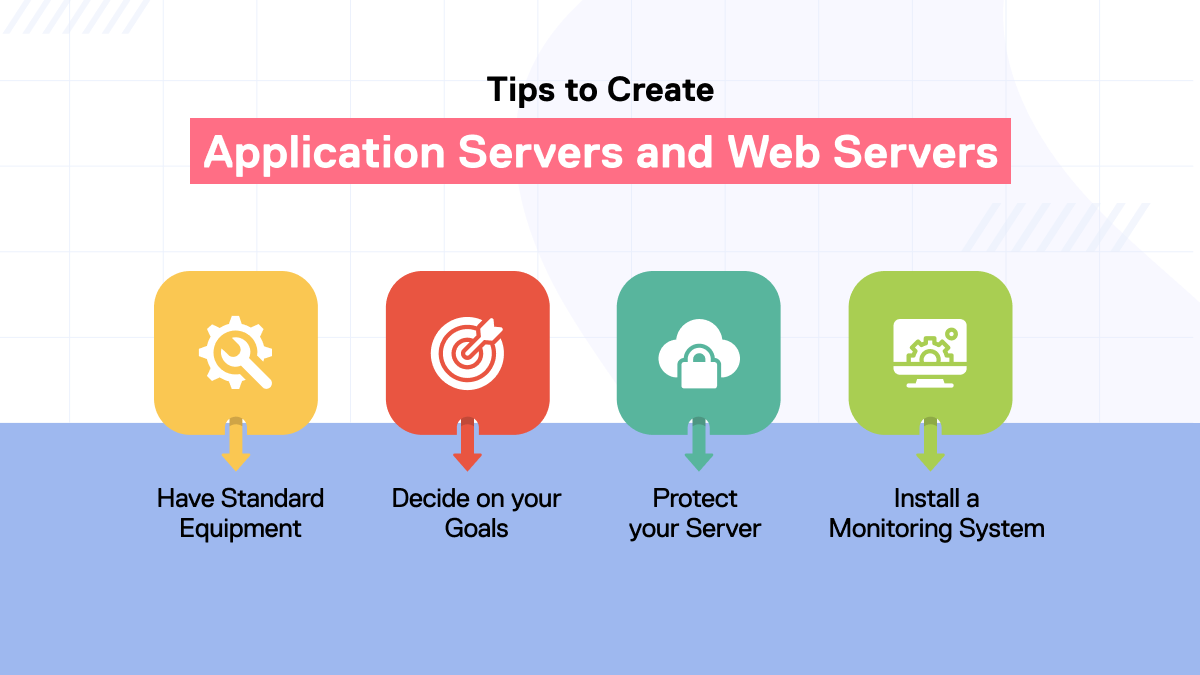
1. Have Standard Equipment
To run an application server or web server smoothly, you need all the standard equipment a computer requires, such as a motherboard, CPU, monitor, and other relevant devices. You can also select to run your server on an existing computer, but be sure to factor in the processing requirements, like setting it up on a separate machine, if you expect the server to be busy.
2. Decide on Your Goals
Before developing or constructing your server, it’s essential to have a clear understanding of your goals. Consider why you’re creating the server, what you expect it to accomplish, and why you’ve chosen to build it yourself. This clarity will assist you in making informed decisions about the necessary equipment and the optimal server configuration.
3. Protect your Server
Protect your server Whether you’re hosting a web server or an application server, server security is of utmost importance. You’re inherently exposing it to potential security risks by allowing others to connect to your machine. Therefore, it’s imperative to implement robust cybersecurity measures for your server and to regularly check for the latest security threats.
4. Install a Monitoring System
Server maintenance and monitoring are very important for the business’s success. A monitoring system offers real-time data about how many resources the server is utilizing, how fast it is processing and if there are any issues. It’s advisable to set up a monitoring system from the beginning so that you are aware of your server’s status and can easily resolve any issue related to it.
Final Verdict: Web Server vs App Server
As both the web server and application server play a vital role in the architecture of web applications, they serve different features and functions in the various aspects of web application development.
Web servers focus on delivering static content, whereas application servers allow developers to develop and deploy dynamic, feature-rich web applications.
Frequently Asked Questions
Q 1: Is Tomcat a web server or an application server?
Ans: Tomcat is stated as a web server as it has functionalities and capabilities that include being a servlet container and a web server.
Q 2: What is the difference between application and file servers?
Ans: The main difference between an application server and a file server is that the application server processes runs and data programs.
Q 3: What is meant by application server?
Ans: An application server is a server that hosts an application or software that delivers a business application through a communication protocol.
Q 4: Is NGINX an application server?
Ans: NGINX is a web server that can also serve as a load balancer, an HTTP cache, and a reverse proxy.
Q 5: Is IIS a web server or application server?
Ans: Internet Information Services, or IIS for short, is a Microsoft web server used for exchanging both static and dynamic web content. It operates seamlessly on the Windows operating system.
Q 6: Can we use Tomcat as an application server?
Ans: As web-based applications are its primary purpose, you can use it as an application server.
Q 7: What are the 3 types of servers?
Ans: The main three server types include mail servers, web servers, and virtual servers.
Q 8: Is Google a web server?
Ans: Google has developed special software called Google Web Server (GWS) for running websites.
Q 9: Is AWS a web server?
Ans: Amazon Web Services is not a web service. It’s a cloud computing platform that provides various services, including the ability to host web servers.


